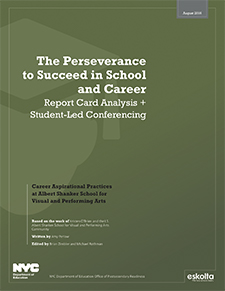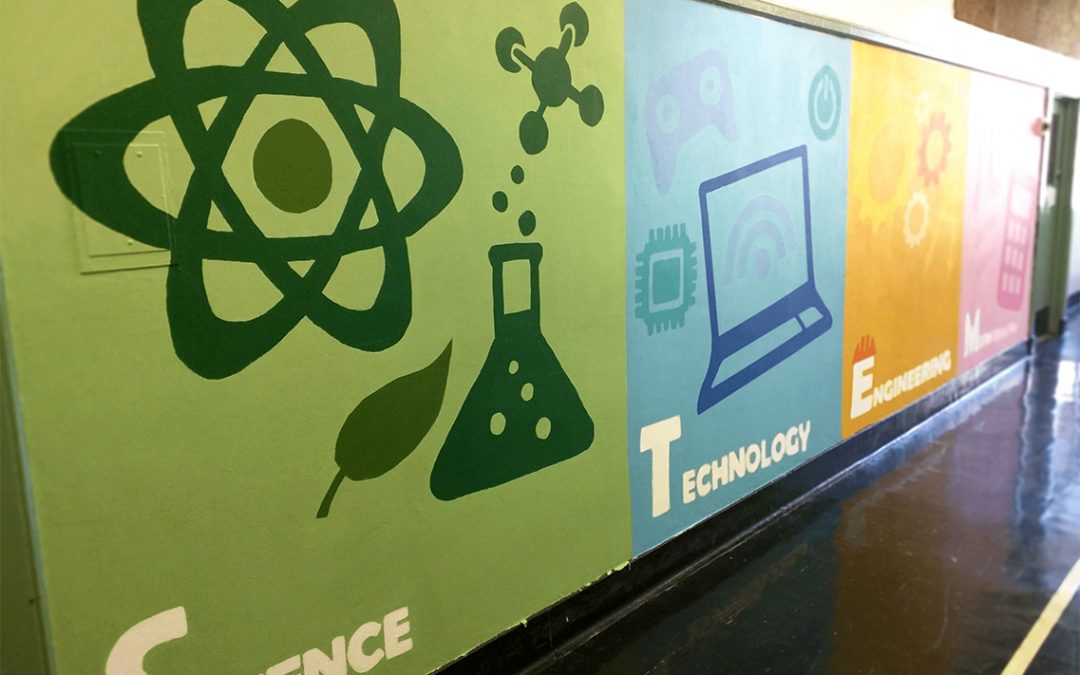“It’s their learning, their scores, and their language development, so we wanted students to be active participants in the process.”
How can schools help students develop a mindset that will support perseverance and lead to long-term career success? During the 2015–16 school year, the NYC Department of Education’s Office of Postsecondary Readiness (OPSR) partnered with Eskolta to launch the Career Competency Fellows program that brought together a select group of eleven educators from schools exhibiting a promising approach to career development for all students. In a series of monthly sessions, these educators learned about career-readiness research from a variety of national sources, interacted with visiting researchers from the City University of New York (CUNY), Harvard University, and Jobs for the Future, and shared their own promising practices to develop insights, resources, and tools. The program was grounded in the College and Career Readiness Domains developed by OPSR to serve as a road map for educators to help students work toward college and career readiness. These domains include: Academic Skills, Academic and Personal Behaviors, Academic Programming, and College and Career Access.
The Perseverance to Succeed in School and Career: Report Card Analysis & Student-Led Conferencing details the practices cultivated at I.S. 126 through the leadership of assistant principal and Career Competency Fellow Kristen O’Brien. In the fall of 2015, 72 percent of students at I.S. 126 Albert Shanker School for Visual and Performing Arts were performing below grade level. To address this gap, school leadership decided to help students build and genuinely internalize the belief that effort and the use of strategies will lead to success. They designed and adopted practices to help students develop their growth mindset—the sense that their abilities can grow with effort—to persevere not only in school but beyond. This case study follows the journey of two students as they engaged with these practices that instilled within them a newfound sense of ownership over their learning born of persisting through struggle.
One strategy detailed in this study involves a close reading of report cards, allowing teachers to provide assistance and encouragement while students reflect on what they see in their report card. This study also shares steps, tips, and tools for engaging in student-led conferences, which help students build the capacity to advocate for themselves by giving them agency in discussing their learning and future goals with adults. For instance, one student, Selene, an English Language Learner (ELL) who could seem shy and passive in school, used the student-led conference tools to choose her own piece of writing for reflection and prepare a script to lead a conference with her teacher and father. During the conference, Selene’s teacher Ms. Vespe shared, “As I observed the exchange between my student and her father during the student-led conference, the word ‘pride’ came to mind: pride in my student’s eyes as she described her essay and pride in her father’s eyes as he listened to his daughter, who was smiling as she presented her work.”


